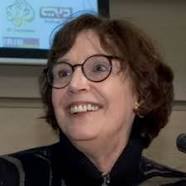Throughout the Cold War, the United States devoted its science and industry to building a gigantic arsenal of deadly weapons, which wreaked devastation without bringing U.S. victory in Korea or Vietnam. But military defeat did not cancel America's ideological victory.
The greatest triumph of American imperialism has been in spreading its self-justifying images and ideology, primarily in Europe. The dominance of the American entertainment industry has spread its particular blend of self-indulgence and moral dualism around the world, especially among youth. Hollywood convinced the West that World War II was won essentially by the U.S. forces and their allies in the Normandy invasion.
America sold itself as the final force for Good as well as the only fun place to live. Russians were drab and sinister.
In the Soviet Union itself, many people were not immune to the attractions of American self-glorification. Some apparently even thought that the Cold War was all a big misunderstanding, and that if we are very nice and friendly, the West will be nice and friendly too. Mikhail Gorbachev was susceptible to this optimism.
Former U.S. ambassador to Moscow Jack Matlock recounts that the desire to liberate Russia from the perceived burden of the Soviet Union was widespread within the Russian elite in the 1980s. It was the leadership rather than the masses who accomplished the self-destruction of the Soviet Union, leaving Russia as the successor state, with the nuclear weapons and U.N. veto of the U.S.S.R. under the alcohol-soaked presidency of Boris Yeltsin - and overwhelming U.S. influence during the 1990s.
The New NATORussia's modernization over the past three centuries has been marked by controversy between "Westernizers" - those who see Russia's progress in emulation of the more advanced West - and "Slavophiles," who consider that the nation's material backwardness is compensated by some sort of spiritual superiority, perhaps based in the simple democracy of the traditional village.
In Russia, Marxism was a Westernizing concept. But official Marxism did not erase admiration for the "capitalist" West and in particular for America. Gorbachev dreamed of "our common European home" living some sort of social democracy. In the 1990s, Russia asked only to be part of the West.
What happened next proved that the whole "communist scare" justifying the Cold War was false. A pretext. A fake designed to perpetuate military Keynesianism and America's special war to maintain its own economic and ideological hegemony.
There was no longer any Soviet Union. There was no more Soviet communism. There was no Soviet bloc, no Warsaw Pact. NATO had no more reason to exist.
But in 1999, NATO celebrated its 50th anniversary by bombing Yugoslavia and thereby transforming itself from a defensive to an aggressive military alliance. Yugoslavia had been non-aligned, belonging neither to NATO nor the Warsaw Pact. It threatened no other country. Without authorization from the Security Council or justification for self-defense, the NATO aggression violated international law.
At the very same time, in violation of unwritten but fervent diplomatic promises to Russian leaders, NATO welcomed Poland, Hungary and the Czech Republic as new members. Five years later, in 2004, NATO took in Romania, Bulgaria, Slovakia, Slovenia and the three Baltic Republics. Meanwhile, NATO members were being dragged into war in Afghanistan, the first and only "defense of a NATO member" - namely, the United States.
Understanding Putin - Or Not
Meanwhile, Vladimir Putin had been chosen by Yeltsin as his successor, partly no doubt because as a former KGB officer in East Germany he had some knowledge and understanding of the West. Putin pulled Russia out of the shambles caused by Yeltsin's acceptance of American-designed economic shock treatment.
Putin put a stop to the most egregious rip-offs, incurring the wrath of dispossessed oligarchs who used their troubles with the law to convince the West that they were victims of persecution (example: the ridiculous Magnitsky Act).
On Feb. 11, 2007, the Russian Westernizer Putin went to a center of Western power, the Munich Security Conference, and asked to be understood by the West. It is easy to understand, if one wants to. Putin challenged the "unipolar world" being imposed by the United States and emphasized Russia's desire to "interact with responsible and independent partners with whom we could work together in constructing a fair and democratic world order that would ensure security and prosperity not only for a select few, but for all."
(Note: You can view every article as one long page if you sign up as an Advocate Member, or higher).





